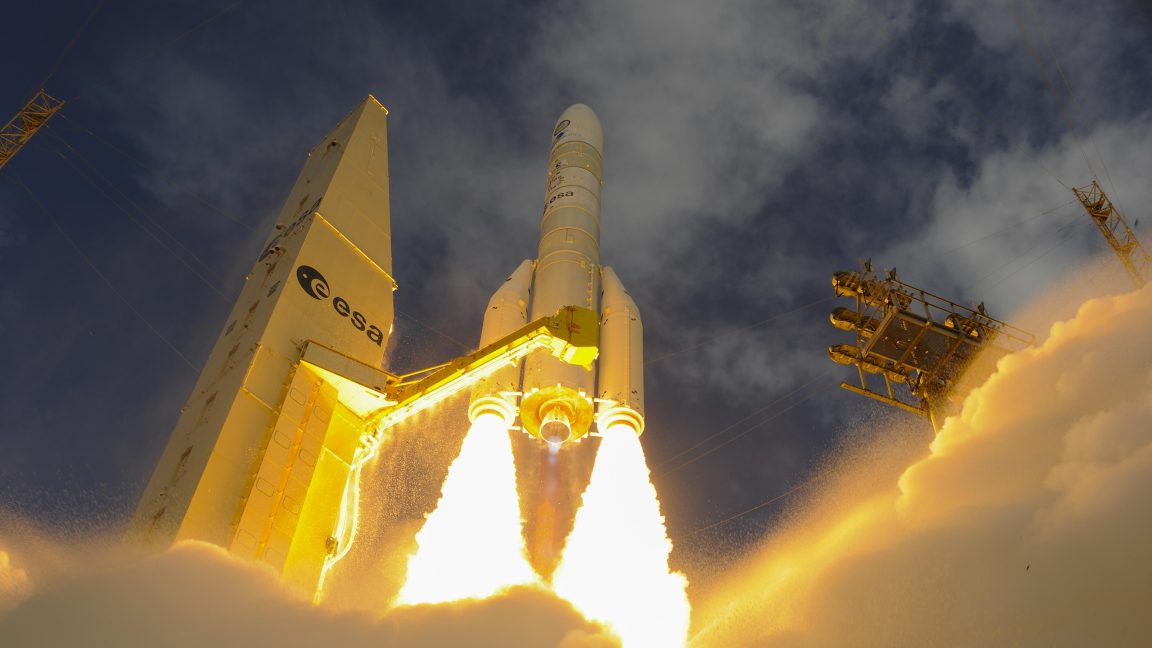ARSTECHNICA.COM
Europe has the worst imaginable idea to counter SpaceXs launch dominance
Unicorn watch Europe has the worst imaginable idea to counter SpaceXs launch dominance This plan, if it ever gets off the ground, seems destined to fail. Eric Berger Feb 4, 2025 2:37 pm | 32 Europe's first Ariane 6 rocket takes flight for the first time on July 9, 2024. Credit: ESA - S. Corvaja Europe's first Ariane 6 rocket takes flight for the first time on July 9, 2024. Credit: ESA - S. Corvaja Story textSizeSmallStandardLargeWidth *StandardWideLinksStandardOrange* Subscribers only Learn moreIt is not difficult to understand the unease on the European continent about the rise of SpaceX and its controversial founder, Elon Musk.SpaceX has surpassed the European Space Agency and its institutional partners in almost every way when it comes to accessing space and providing secure communications. Last year, for example, SpaceX launched 134 orbital missions. Combined, Europe had three. SpaceX operates a massive constellation of more than 7,000 satellites, delivering broadband Internet around the world. Europe hopes to have a much more modest capability online by 2030 serving the continent at a cost of $11 billion.And Europe has good reasons for being wary about working directly with SpaceX. First, Europe wants to maintain sovereign access to space, as well as a space-based communication network. Second, buying services from SpaceX undermines European space businesses. Finally, and perhaps most importantly, Musk has recently begun attacking governments in European capitals such as Berlin and London, taking up the "Make Europe Great Again" slogan. This seems to entail throwing out the moderate coalitions governing European nations and replacing them with authoritarian, hard-right leaders.All of that to say, it is understandable that Europe would like to provide a reasonable answer to the dominance of SpaceX.Bring on the bankersHowever, the approach being pursued by Airbusa European aerospace corporation that is, on a basic level, akin to Boeingseems like the dumbest idea imaginable. According to Bloomberg, "Airbus has hired Goldman Sachs Group Inc. for advice on an effort to forge a new European space and satellite company that can better compete with Elon Musks dominant SpaceX."The publication reports that talks are preliminary and include France-based Thales and Italy's Leonardo S.p.A. to create a portfolio of space services. Leonardo has hired Bank of America Inc. for the plan, which has been dubbed Project Bromo. (According to Merriam-Webster, "bromo" is a form of bromide, which originates from the Greek word brmos, meaning bad smell.)European companies have struggled to catch up to the commercial space industry that has developed in the United States over the last 15 years, which has been led by SpaceX but also includes dozens of other players. Some of this is because the European Space Agency has been slower to offer fixed-price contracts and develop a competitive environment that levels the playing field for agile new space companies with institutional players. Other reasons include a more favorable environment for entrepreneurial activity in the United States and access to venture capital.The European Space Agency has sought to change in recent years, initiating competitions such as the European Launcher Challenge. However, it is clear that Europe is far behind the United States and, to a lesser extent, China when it comes to developing a vibrant commercial space ecosystem.It is difficult to see Airbus and some of the other large, institutional space companies in Europe banding together and becoming nimble and more efficient operators in spaceflight. That would require enormous changes in companies that have decades of ossified culture, with layers of management that are difficult to cut through.ULA replay?This plan seems destined to fail.Two decades ago, the US military forced Lockheed and Boeing to merge their launch businesses to create a single company. Although there were several goals of this venture, which became United Launch Alliance, one of them was that by combining operations, the companies could avoid duplication and become more efficient. The opposite happened. Launch prices ballooned, and America consistently ceded the commercial launch market to foreign players into the 2010s, right up until when SpaceX got its Falcon 9 rocket flying frequently.The idea that some bankers from Goldman and Bank of America will go into the guts of some of Europe's largest institutional space companies and emerge with a lean, competitive entity seems far-fetched, to put it mildly. One might even expect that it would be more likely to observe unicorns dancing in a flame duct.Eric BergerSenior Space EditorEric BergerSenior Space Editor Eric Berger is the senior space editor at Ars Technica, covering everything from astronomy to private space to NASA policy, and author of two books: Liftoff, about the rise of SpaceX; and Reentry, on the development of the Falcon 9 rocket and Dragon. A certified meteorologist, Eric lives in Houston. 32 Comments
